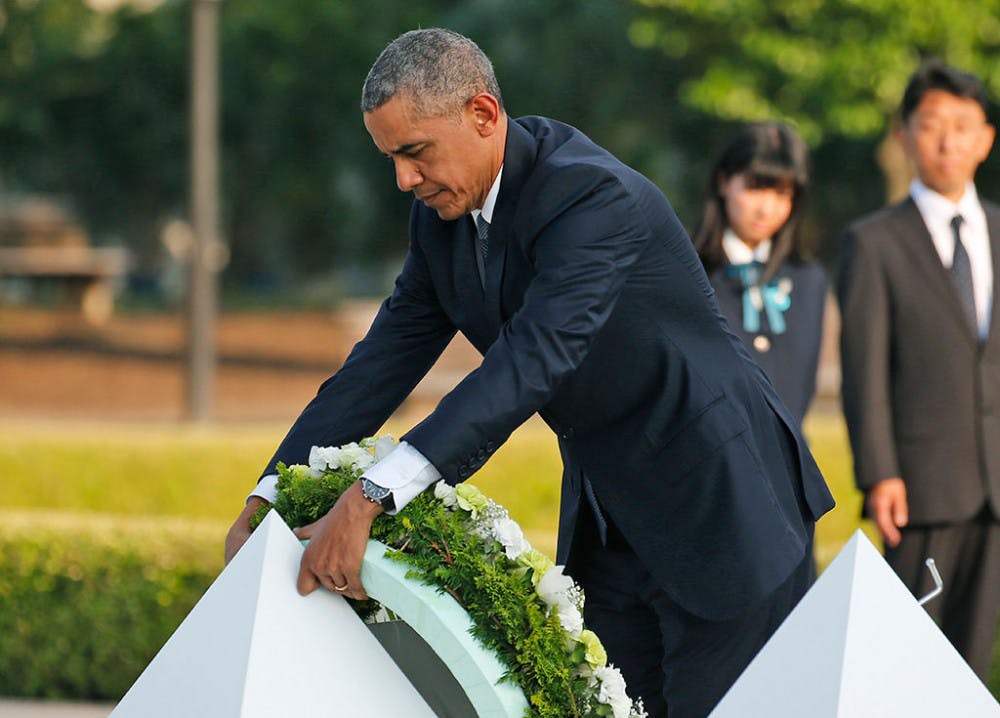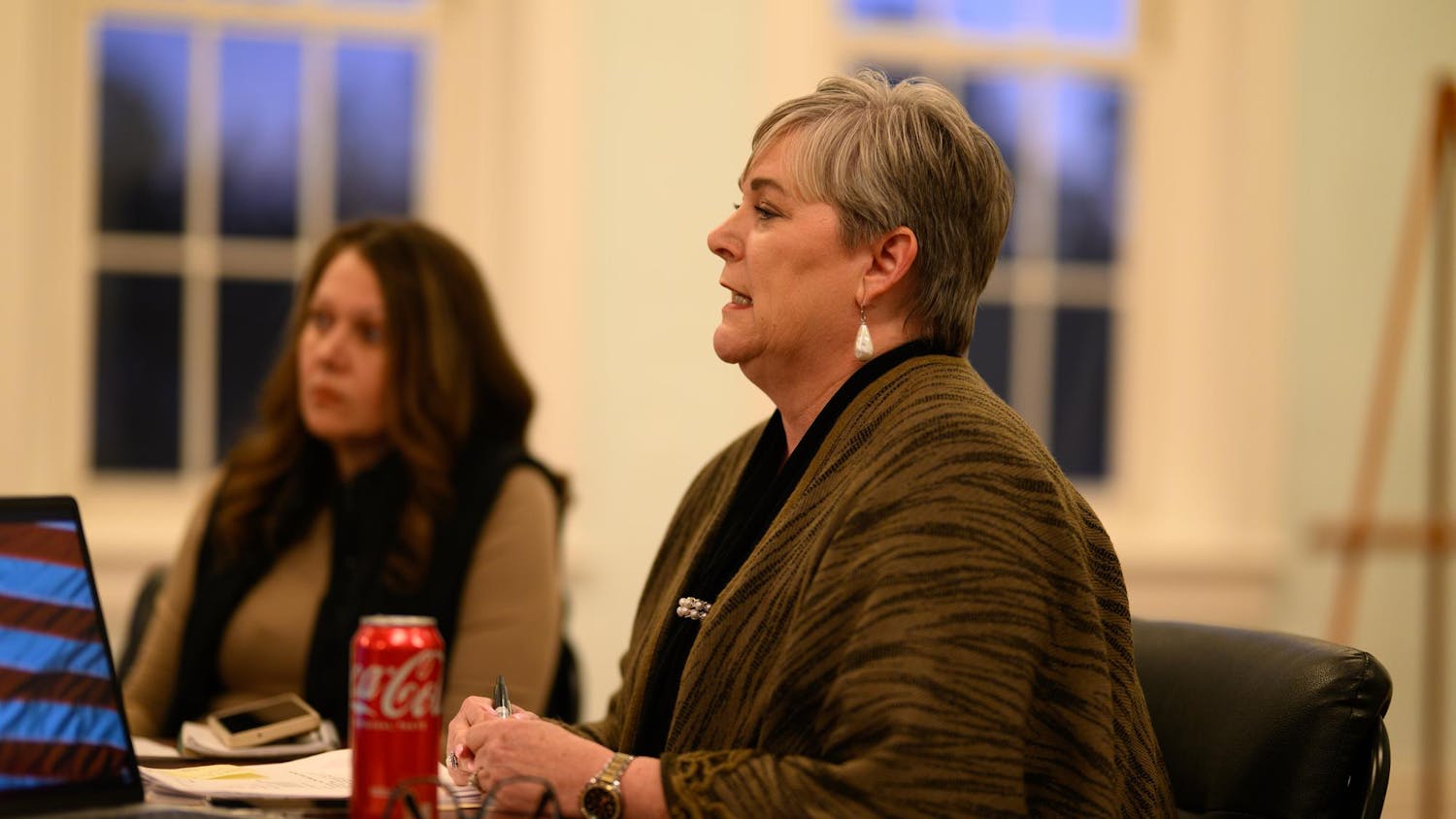
U.S. President Barack Obama lays wreaths at the cenotaph at Hiroshima Peace Memorial Park in Hiroshima, western Japan, Friday, May 27, 2016. Obama on Friday became the first sitting U.S. president to visit the site of the world's first atomic bomb attack, bringing global attention both to survivors and to his unfulfilled vision of a world without nuclear weapons. (AP Photo/Shuji Kajiyama)
On Friday, President Barack Obama made a remarkably historic visit to Hiroshima, Japan, calling for a “moral revolution” and a “world without nuclear weapons” in his address. If this rhetoric sounds at all familiar, that’s because, well, it is.
Three months into his presidency, in 2009 (many of us were in middle or early high school. Time flies so quickly!), Obama stood before a crowd in Prague and said, “So today, I state clearly and with conviction America’s commitment to seek the peace and security of a world without nuclear weapons,” to which the crowd applauded and the Norwegian Nobel Committee decided on a new peace prize laureate.
Now, seven years later, we can look back at our country’s nuclear developments and determine whether Obama’s words in Prague and in Hiroshima stand true. Unfortunately, the answer is no, they haven’t. In fact, his administration and the Pentagon currently push a nuclear modernization program set to cost $1 trillion over the next three decades.
Publicly, the Obama administration argues these costs are necessary to revitalize the infrastructure and operating systems of the nuclear storage and deployment sites. Anyone who’s seen the epic “Last Week Tonight with John Oliver” video is well aware of our haphazardly managed nuclear facilities, some of which still use floppy disks on computers that look like they could barely run the 1970s version of Pong.
In reality, though, the justification for this new modernization effort reflects a new post-Crimea strategy against Russia and a degree of political dealing. The budget proposal for the 2017 fiscal year specifically highlights how the budget allows for the Department of Defense to “modernize our nuclear arsenal” within a broader effort to combat Russian aggression in Eastern Europe.
And while the efforts are framed in terms of modernization and justified with the crumbling infrastructure of our nuclear sites, which is in itself a serious issue, much of the costs of this initiative relate to expansions of weapons themselves: We’re talking about 12 new missile submarines, up to 100 new bombers and 400 land-based missiles, either new or refurbished, according to The New York Times.
Even the hawk and “maverick” Sen. John McCain, R-Ariz., called the initiative “very, very, very expensive,” and further asked if we “really need the entire Triad,” referring to the land, sea and air-based deployment methods for nukes.
This whole nuclear business is yet another example of how Obama will say one thing in front of the microphone, while pursuing literally the exact opposite agenda behind closed doors.
And it’s not just nukes: He stands before the nation in his State of the Union addresses and calls for comprehensive immigration reform, while simultaneously earning the title “deporter-in-chief” from Latino advocacy groups like the National Council on La Raza. For however much you may like the president — and there’s a lot to appreciate about him — this discrepancy between action and rhetoric is something we must hold him accountable for.
“We are not bound… to repeat the mistakes of the past. We can learn. We can choose.” We at the Alligator would encourage Obama to heed his words from Hiroshima. We know congressional obstructionism and current international military challenges really do not bode well for the prospect of peace currently, but right now, this initiative is akin to a Cold War-era arms race.
We need to be vigilant in our efforts, concerted in our implementation. We need to be able to look at the prospect of nuclear non-proliferation and say those three words it seems we’ve long forgotten: “Yes, we can.”





